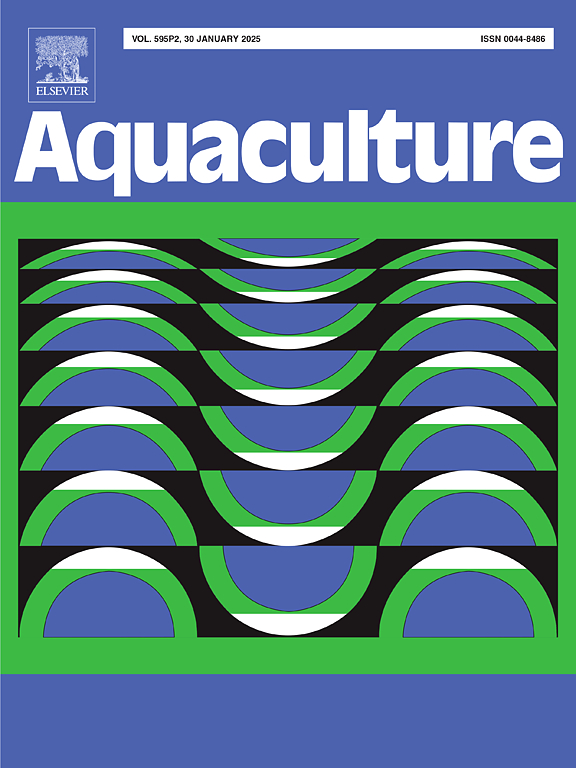Effects of feed satiation on energy metabolism in the mussel Mytilus coruscus under ocean acidification and warming and possible hormonal regulation
IF 3.9
1区 农林科学
Q1 FISHERIES
引用次数: 0
Abstract
Over the past several decades, it is thought that human activities have been a significant factor in bringing about increased atmospheric carbon dioxide concentrations, thereby contributing to elevated ocean acidification and warming. Due to their sessile nature, marine bivalves are considered to be particularly vulnerable to such alterations of the marine environment. Much remains unknown concerning the underlying strategies by which marine bivalves modify energy demand under such conditions. In addition, whether feed availability has an effect and plays a role in this respect is unclear. In the present study, we attempted to address these questions by investigating metabolism and energy pathways in the mussel Mytilus coruscus. Warming, acidification, and food shortage have significantly impacted metabolism, energy pathways, circadian rhythms, hormone activity, and gene expression related to metabolism and circadian rhythms in mussels, leading to energy limitations. Thermal tolerance data indicate that M. coruscus has substantial adaptive capacity to environmental stressors. Bivalves can regulate energy production pathways by modulating serotonin and triiodothyronine hormones, and adequate food availability enhances this regulation. Our findings suggest that ocean warming and acidification synergistically alter energy metabolism in mussels, causing energy limitations, and that food availability is crucial for maintaining mussel condition.

求助全文
约1分钟内获得全文
求助全文
来源期刊

Aquaculture
农林科学-海洋与淡水生物学
CiteScore
8.60
自引率
17.80%
发文量
1246
审稿时长
56 days
期刊介绍:
Aquaculture is an international journal for the exploration, improvement and management of all freshwater and marine food resources. It publishes novel and innovative research of world-wide interest on farming of aquatic organisms, which includes finfish, mollusks, crustaceans and aquatic plants for human consumption. Research on ornamentals is not a focus of the Journal. Aquaculture only publishes papers with a clear relevance to improving aquaculture practices or a potential application.
 求助内容:
求助内容: 应助结果提醒方式:
应助结果提醒方式:


